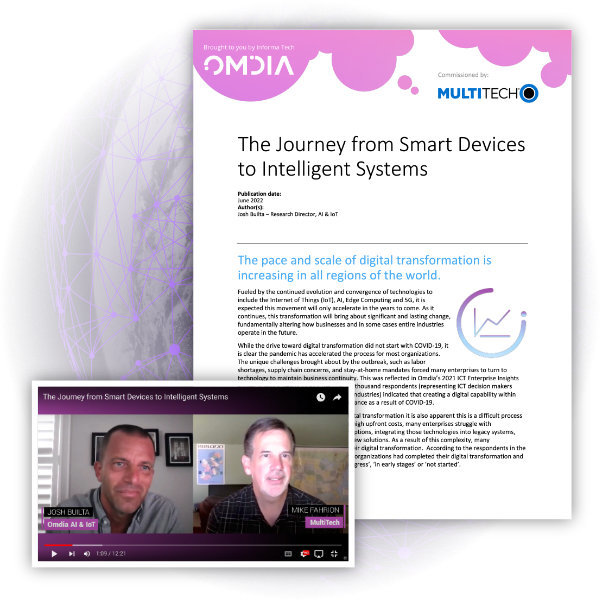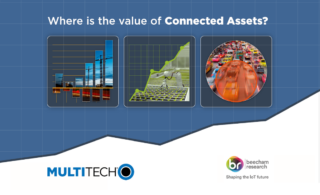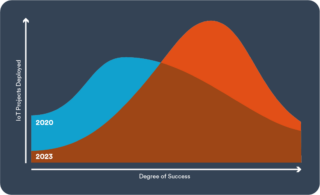The Journey from Smart Devices to Intelligent Systems
Completing the IoT journey is difficult. Yet, 96% of IoT Adopters surveyed expect an ROI within just two years.

The pace and scale of digital transformation is increasing in all regions of the world.
Fueled by the continued evolution and convergence of technologies to include the Internet of Things (IoT), AI, Edge Computing and 5G, it is expected this movement will only accelerate in the years to come. As it continues, this transformation will bring about significant and lasting change, fundamentally altering how businesses and in some cases entire industries operate in the future.
While the drive toward digital transformation did not start with COVID-19, it is clear the pandemic has accelerated the process for most organizations. The unique challenges brought about by the outbreak, such as labor shortages, supply chain concerns, and stay-at-home mandates forced many enterprises to turn to technology to maintain business continuity.
This was reflected in Omdia’s 2021 ICT Enterprise Insights
survey in which nearly 72% of the over six thousand respondents (representing ICT decision makers from over 100 countries and 30 different industries) indicated that creating a digital capability within their organization had increased in importance as a result of COVID-19.
Despite the value organizations see in digital transformation it is also apparent this is a difficult process with numerous challenges. In addition to high upfront costs, many enterprises struggle with understanding the myriad of technology options, integrating those technologies into legacy systems, and then training their workforce to use new solutions. As a result of this complexity, many organizations struggle with completing their digital transformation.
According to the respondents in the ICT Enterprise survey, globally just 15% of organizations had completed their digital transformation and over 55% stated this transition was ‘in progress’, ‘in early stages’ or ‘not started’.



